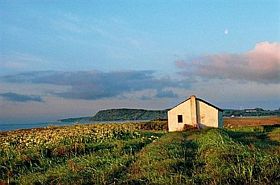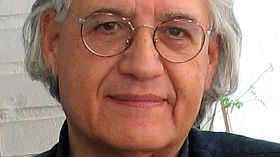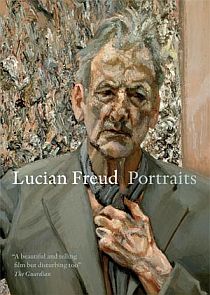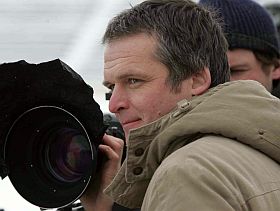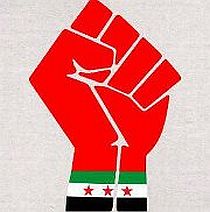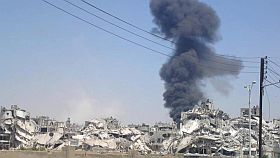


Timo Novotny: Trains of Thoughts
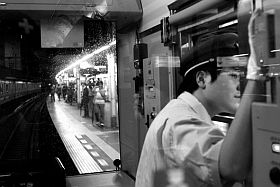
After the original, masterly done ”Life in Loops”, the remix of Michael Glawogger’s ”Megacities”, accompanied by music by the Sofa Surfers, Austrian Timo Novotny has gone underground to investigate the magic of the subways and metros of – again – megacities like New York, Los Angeles, Tokyo, Hongkong and Moscow with Vienna as the starting point and a place the director returns to. Again he has brought the Sofa Surfers with him and again he delivers an extravagant visual journey, a reflection on a space that millions of people daily occupy to be transported, for some an escape from the upper world, for others a space full of stories connected to its travellers. Novotny is an aesthete and his fascination of lines and forms is brilliantly conveyed through the montage of images, words and the music of the Sofa Surfers. Music that flows the whole way through and is synergetic with the image in pulse and rythm, contrary to the mainstream use of music in documentaries today, where the music is poured on like sugar to hide lack of energy in the sequences.
He starts his journey in the New York Subway, a place we know from many other films, homeless people are here, a micro-world it is, that shows – as one of the people we do not see but hear, say – that New York belongs to noone = everyone. You lose the feeling of time and space, you get overwhelmed by ”how many stories that are going on here”, ”I found a boyfriend in the subway”, you go by subway ”to be for yourself”. In this first chapter that also
includes a brief hip hop performance in a train, there are many words outside the image, too many for my taste, some are a bit naïve and banal. On the other hand one of the peaks of the film comes when the black, bearded poet recites one of his poems, accompanied by the music and a magnificent montage that ressembles the opening sequences of ”Life in Loops”.
In the next chapter, in Los Angeles, close to Hollywood, the metro looks like a film set. Breaking all rules of normal documentary storytelling, Novotny here places a man on the platform and to him comes people to talk a bit, small stories, faces, and a rap performance that the director takes as an invitation to ”go bananas” with the editing… In between the chapters a man with a camera (the director´s alter ego?) takes photos where he is not allowed to be, walking along the rails.
Tokyo, where the train is always on time and where staff on the platform pushes the last one into the train carriage, for women often to be sexually harrassed, says one of the people, we do not see but hear. The solution for telling the story is in this case to follow one person, whose thoughts circle around death and suicide. Again Novotny takes stylistical elements from all shelves – slow motion, stop motion animation, whatever suits the sequence. Everything in the editing is controlled but within the controlled space, small music videos, you could call it, emerge and stand out.
From Hongkong to Moscow, where the audience is invited to follow a group of Italian tourists in the metropole’s beautiful underground, a strong contrast to the anonymous ”efficient” transporter in Hongkong, a metro with a soul, spiritual as it is, stressed by the Sofa Surfers introduction of the sound of bells in their musical score.
There is a flow in this film, a very intense one with stops on the way, with faces within the lines and the forms of the tracks and the movements, with light and shadow, and with sometimes incredibly beautiful sequences. With a, in a positive sense, aggressive approach to its subject.
Thank you Novotny, for not having chosen the Parisian metro, where it is not an experience, but a torture to walk and walk from one station to the other (did you try that with Les Halles?) but next time in Copenhagen I will pick you up in the airport and bring you to sit with me at the front of the driver loose wagon. It is fascinating like it is to watch your new work.
The film premiered at the Karlovy Vary International Film Festival beginning of July, went to Sarajeo Intl. Film Festival and is to have its live premiere in Venice at the opening of the Austrian Pavilion of the Architecture Biennale late August.
Austria, 85 mins., 2012
